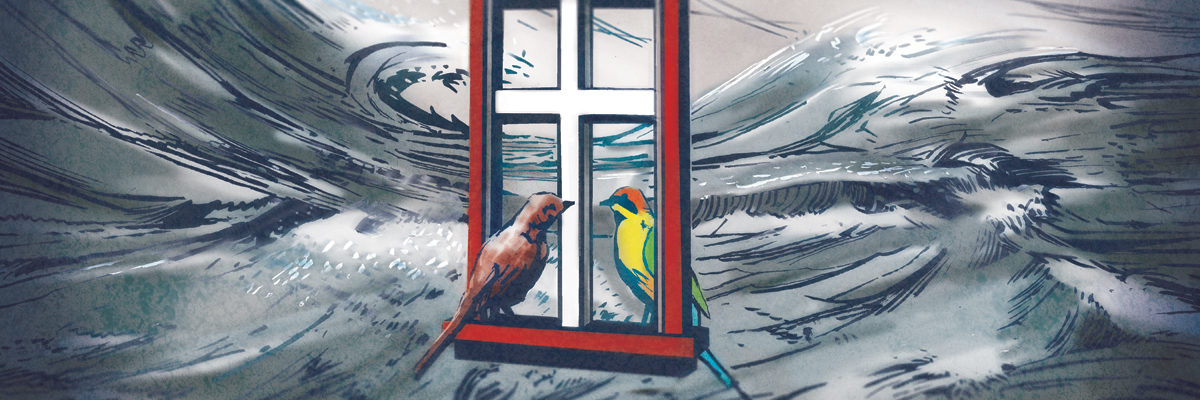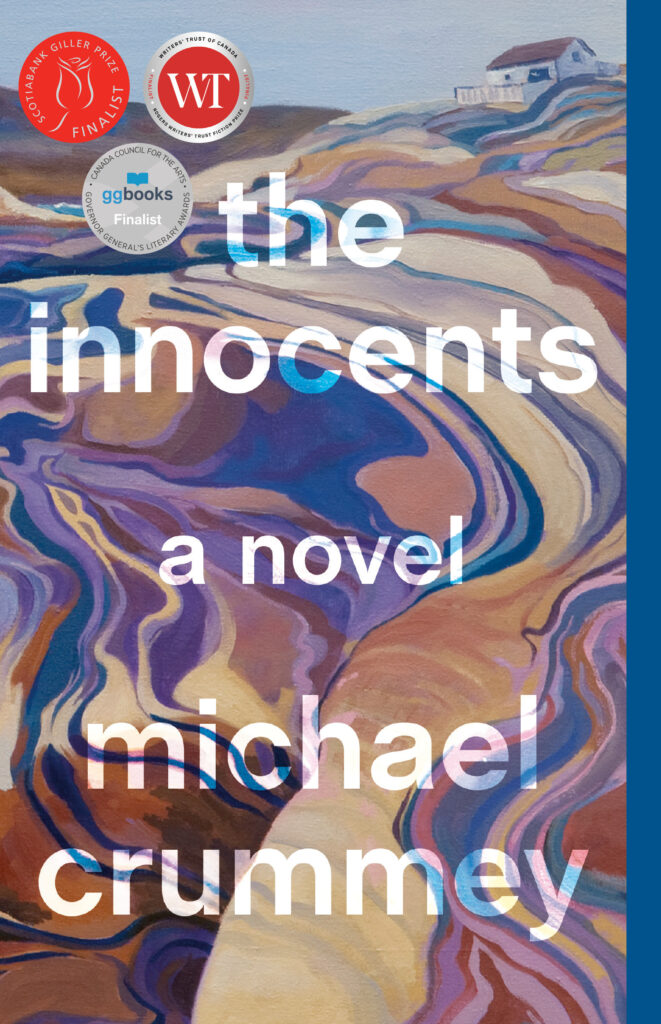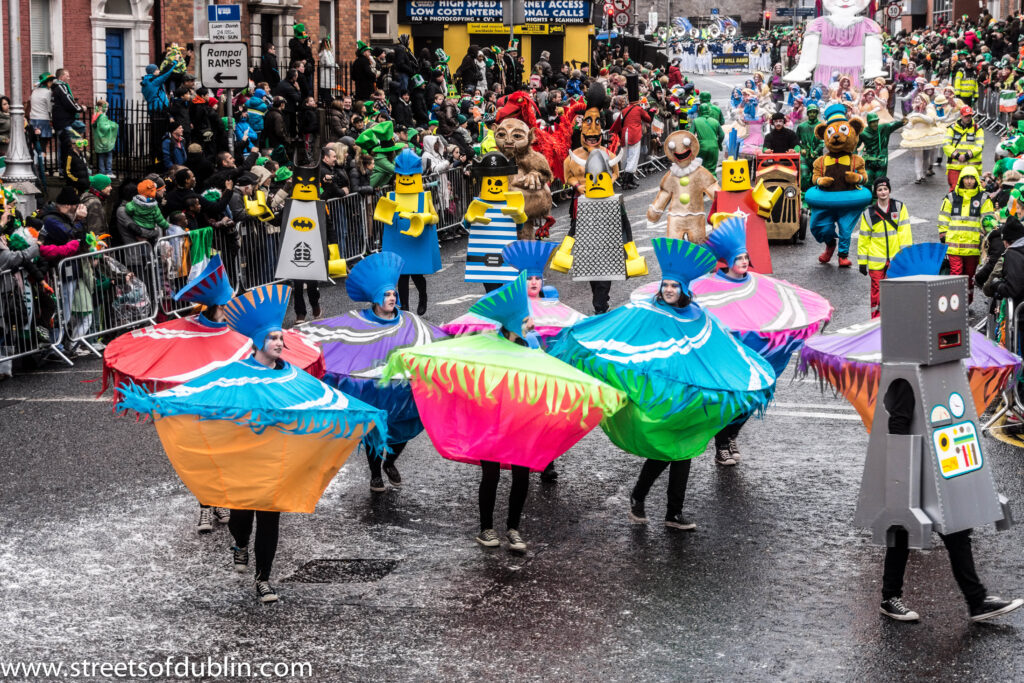The Creation of Water
March 2018
There’s a gazebo in the back where we keep our idols. It stands crumbling against the desert and its wind and storms, open to the elements, its bricks so large and heavy that no man could lift them even with the mechanisms used for such building. My grandfather tells me this when I am young and I do not forget it. It stays with me on each visit I make to touch the tarnished cross, to glance on the pages of the book that falls apart.
What is it? I ask my mother, pointing to it on my last look, the day we travel.
It is God, she says.
But I don’t know about that. I see the water rising from the depths of silt, pummeling a wall. The tarnished cross floats across the desert.
***
Junot, mother is yelling, come and put on your apron.
It is fourth of July and despite this, I am angry that I have been given a boy’s name. I want her to say June like the rest of the Americans, but she refuses or else forgets and laughs if I make a big deal. In the kitchen, the women are making stews for the party. My grandfather is off buying meat. There is a steak on his list for me. We’ve been here three months.
Let’s be fat, he said, patting his belly, which I know is really made of beer.
Okay, papa, I said, but he took my uncles and my brothers and is gone for hours, leaving me and my sister with the women to cook.
Peel the turnips, Junot. Bring them here.
They are bulky and there are many to be carried to the little table in the corner. I know mama wants to show me off. I am the youngest and so, her favourite. I try to smile and be polite. The peeler is small, its handle a miniature cob of yellow corn. In Mexico, colour was everywhere but here it is for holidays and peelers only. It is one of the things we left behind: that and my father, who is dead and so we had to. I am happy to help but in my enthusiasm, I shave a thin slice of skin from a finger so that tiny dots of blood appear. I stand there watching them bubble and the women notice. Wash it off, my mother says.
Tapping its beak on the window by the sink is a small brown bird. It looks at me and pecks the glass as if to say let me in. It does not see that the doors all through the house are open. It is free to enter. I try to tell it, motioning with my arms, to go around this way or that. I poke my head outside to show it how and my sudden closeness startles it. It swoops low to the ground and then up to the sky and is gone.
In the back, there is just dust where a yard should be inside a tall fence with chipped green paint. In the middle are the chairs my uncles and grandfather brought over from the community centre, twenty of them spread out in groups that face the stainless steel barbeque. It shines like a beacon, a lighthouse light. I bet you can see it from space.
When the potatoes are cleaned I help the old lady Theresa wrap them in tinfoil and poke holes to let the heat out. I walk them to the barbeque, to Grandfather, and he lays them in first. He says it will take hours, to hold my horses. The men drink from small cans that they crush on their legs when they are done and toss across the yard, making more beacons, but soon you cannot see them for the feet that dance. The songs from the radio are tinny and distant. They surf the waves of oppressive heat, fold into the colourful skirts of the women.
For a moment, I feel like I’m home. We are dancing outside like it’s okay here, too. If I’m not mistaken, though, the real world is below. We are in a dome of chemicals, inhalants. These things we need to keep us breathing. If you break the film of the earth with a needle, our lungs will implode. We will run around with our hands to our necks, the universal sign for choking, knocking into one another, exasperated and blue.
Beneath the sea, my grandfather says, are other worlds. Beneath that tree on the island, there is a city, corrupt and wasting. Birds fly, shrieking, doomed, and they do not know of us. They do not know that their sky is our sea, that there is breath yet, that there is escape. It is only the dark things that know the way to the surface, he says. For in darkness comes an understanding. It is the desperate who dream most clearly. That, he says, is what Lovecraft meant with Cthulu.
***
St. John’s isn’t all that different from L.A or at least, it’s the same kind of idea. I am older now and this is new weather, sure. New people, university. I followed Bobby here. He came to study medicine. At first we’d lived in a small apartment at the residence. Now we are by the harbour. Newfoundlanders are poor like in our neighbourhood, Bobby’d said and it is true. They put bread and spice over their fries and drench the whole thing in gravy, which here is just animal fat that is a dull brown and packed with salt. I can’t stop eating it. It’s the baby, I think, and also I think how can you have a baby this far from home?
When Bobby is done, he will be a doctor here in Canada and my mother will come visit sometimes. In California, she has sun and warm wind. Here, the days are dark and the streets are heavy with wet snow that mulches black from boots and cars, but church bells ring at noon on Sundays, so there is that, I tell her when we speak on the phone. In the back I hear my sister, yelling after her children.
We get an old cupboard from a yard sale and Bobby installs it in the kitchen. As long as we keep the place up, the guy says we will not have to pay rent. I have a job as a waitress downstairs. Bobby is excited for my pregnancy, and has named the child Meredith after a song on the radio.
How do you know it is a girl? I ask him when his hand is on my belly, which is most of the time.
I just know, he says. How is it that you don’t?
At the café, the businessmen sit for too long drinking coffee and reading papers. I wait for them to go so I can clean the tables and finish my shift. On the street, the snow is thawing in the sunshine and I long to be out there, enjoying spring but I head upstairs.
I paint the cupboard the colour of limes. I push it against the best wall and in the centre, I lay a statue of the virgin to watch over the cooking. There is a drawer in the cabinet with a lock that works, and it’s here I put the important things: our papers and passports, Bobby’s transcripts, my mother’s letters and pictures and recipes. I hang my set of keys on a mug hook, where I can see them. I listen to the CBC and make sausages and the meat is expensive, but it’s worth it. Bobby says this is lovely and while we eat, we admire our little place. The baby is coming soon. The days are growing slower.
***
My grandfather and I are walking behind the house in Mexico, toward the little gazebo, the room where we said our prayers. Time will not take this place.
Don’t they say “ashes to ashes”?
Not this, he says. These walls will fall in waves of water.
The first fish came out of the water and walked on land, he says, did you know that?
I shake my head. I’m not a little girl anymore, I say, and then I look down and I am round and pregnant and a great pain tightens across my belly, doubling me over.
Grandfather enters the gazebo. I waddle behind, my hand at the small of my back, my teeth tight and pressing. Above me, the sky shakes, threatening to split open the shell of our world, revealing another. No, I think. Stay here, I think. Stay here.
Something mighty puts its hands on the shell, on the chemical layer, and pushes. Its thumbs press into the blue horizon, the grooves in its prints big as thunderbolts, black against the clear blue sky, scattering clouds.
Do you believe in evolution, papa?
When I get next to him, he is standing with the holy book in his hand, turning over a page. It disappears. For a moment he is sad. Then the sunlight peeks through the bricks and he looks up and he smiles and he says, I believe in water.
I wake and the bed is wet and Bobby is running across the apartment, calling a cab. It’s okay, you stay there, he is shouting.
I lie back, grip the sheets when the pain hits. Eyes closed, I can feel the heat of home, smell the desert. I see the wall of our gazebo fall, turn to water.
Don’t worry, grandfather says. We took it with us.
And it’s true. There is just sand now, not even the impression of a building.
C’mon, Bobby says, the cab is here. He pulls me to my feet. The water runs down my legs in long drips and the baby turns, beating its fists to get out.
Across the desert steps my grandfather. I sing out papa and he does not turn. He is meeting a man and that man is my father and he’s as handsome as I remember him, in black with silver on his belt and the tips of his boots. They start to dance out there, on the horizon, a slow one-two, one-two with hands on hips, one they taught me when I was little.
At the hospital they take my information.
June Marquez, Bobby tells them.
Junot, I say, but they do not hear me.




